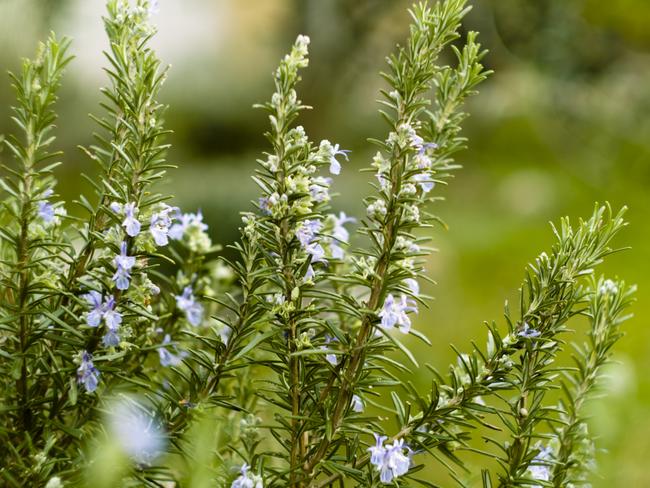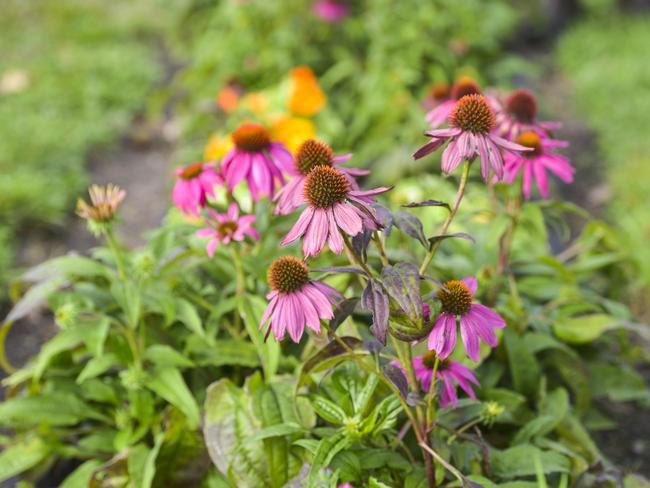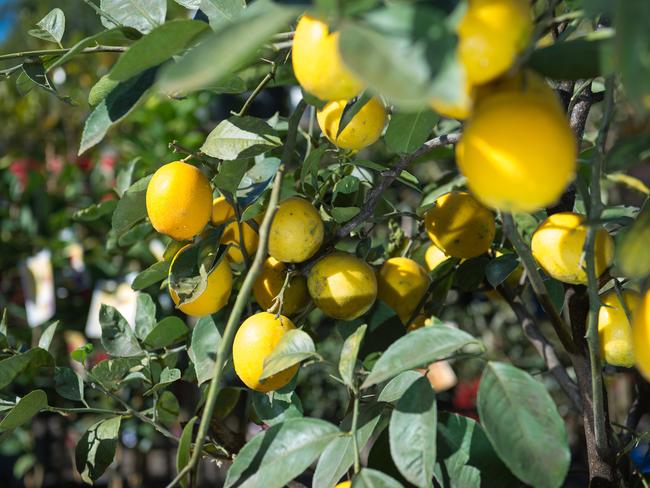Cold and flu remedies: many benefits to growing medicinal plants at home
There are many ways to strengthen your immune system this winter that can be right under your nose.
Outdoors
Don't miss out on the headlines from Outdoors. Followed categories will be added to My News.
This time of year is known as the dreaded cold and flu season.
While there is no cure for the common cold, research has proven that there are ways to strengthen your immune system and help relieve the symptoms and duration of a cold.
Qualified naturopath Hayley Stockbridge, who has more than 14 years of experience, says natural remedies can be helpful at this time of year and many of them can be grown in your garden, even if that’s a small terrace or courtyard.

Hayley says there are many benefits to growing medicinal plants at home – not only will you have easy access to what you can use to help strengthen your immune system, it’s also more cost-effective than buying herbal supplements, medications and visiting the doctor.
From ginger to lemon, garlic, rosemary, sage and echinacea, the good news is, you can grow all these plants relatively easily. They all promote good health, which is especially important in today’s Covid climate.
Lemon
A perfect addition in salad dressings and the hero of tarts, lemon is also high in vitamin C, which Hayley says tops the list of immune boosters for many reasons.
“Vitamin C increases the production of infection-fighting white blood cells and antibodies, and increases levels of interferon, the antibody that coats cell surfaces, preventing the entry of viruses,” she says.
“It’s well researched to improve resistance to infection and reduce the duration and frequency of the common cold.”
Limes, oranges, grapefruits, Kiwi fruit, strawberries and leafy green vegetables are all high in vitamin C, too.
While it may take some years for your Lemon Tree to bear fruit, you can buy an already established plant from your local nursery. Position in full sun in the garden or opt for a dwarf variety and place it in a pot on your deck.

Ginger
A flowering plant with woody roots, ginger has been used as a herbal remedy for centuries throughout the world to treat many conditions from abdominal pain to arthritis. Loaded with antioxidants, ginger has also been proven to help with nausea and digestive issues, too.
When it comes to a cold, Hayley says because ginger is anti-inflammatory it can help soothe inflamed mucous membranes in the nasal passages and lungs, essentially clearing the sinuses.
Ginger is a tropical plant that prefers warm and humid conditions, and can be grown in the ground or in pots.
Try adding ginger to your curries and stir-fries, or steep in hot water with lemon and honey.
Garlic
As well as adding a great depth of flavour to soups, pasta sauces and roasts – pretty much all savoury dishes – garlic has many proven health benefits including working as an anti-inflammatory for sore joints and muscles, and improving cardiovascular health.
Hayley says garlic is also a natural antibiotic and a well researched herbal medicine to help your body fight infection – which is exactly what we need in winter.
In warm climates, the best time to plant garlic is in March with the garlic bulbs ready for harvest in late spring or summer. And if you do eat a lot of garlic, just remember to brush your teeth thoroughly.

Rosemary
A perennial herb that loves a hot and dry climate, rosemary is a great addition to any garden.
Hayley says as well as being anti-inflammatory, rosemary is rich in antioxidants and can boost circulation and strengthen your immune system to help prevent colds. Rosemary prefers full sun with well-drained soil, and be sure to prune back your plant in late spring or early summer.
Make rosemary tea at home by brewing the leaves in hot water and sweetening it with honey, or snip off a few branches and throw it in a roasting tray with potatoes and a leg of lamb.
For relief from nasal and chest congestion, breathe in the steam from aromatic rosemary with hot water.
Thyme
“Thyme is a strong respiratory antimicrobial and antibacterial herb,” says Hayley.
Research has shown that thyme can support your immune system to fight bacteria, infections and sore throats.
Thyme is easy to grow and can be done so in full sun in garden beds or in pots.
Tasting great both dried or plucked fresh from the garden, thyme can be used in herbal teas, or to flavour meats, vegetables and soups.
Pretty and soft, sage is another strong respiratory herb that helps to reduce infections, specifically infection of the lungs, says Hayley.

Echinacea
When it comes to natural remedies that are helpful at this time of year, Hayley says echinacea is the most important immunity herb.
Native to North America with pretty purple flowers and commonly called coneflower, the echinacea plant has traditionally been used as a herbal medicine for a variety of health issues including skin wounds, infections and even snake bites.
These days echinacea is best known for helping to boost the immune system with research suggesting that the plant may be helpful in the prevention and treatment of colds.
To ensure you are receiving the full therapeutic benefits of echinacea, Hayley recommends using the root of the plant, as well as the flowers and leaves.
You can either make a tea infusion from the dried leaves and petals or a decoction out of the dried roots.
TOP TIPS FOR WINTER HEALTH
Sleep
Improve your energy levels and reduce stress by getting an adequate amount of sleep. Try to go to bed at the same time each night, put down screens from 8pm and do some guided relaxation.
Green smoothie
Try to include a homemade green smoothie or fresh juice daily as an easy way to increase plant foods. Banana, blueberries, spinach, oat milk and honey are a great combination.

Healthy snacks
Avoid processed foods with little to no nutritional value and instead snack on vegetable sticks and two pieces of fresh fruit per day.
Lots of vegetables
Add three to four big handfuls of vegetables to salads at lunch and again at dinner to increase your vitamins and mineral intake. Plus, vegetables taste delicious.
Limit your sugar intake
Sugar weakens our immune system and feeds bacteria, so it provides a food source that can make germs thrive.
For all your gardening tips and home improvement and renovation advice, visit us At Home.
Originally published as Cold and flu remedies: many benefits to growing medicinal plants at home




